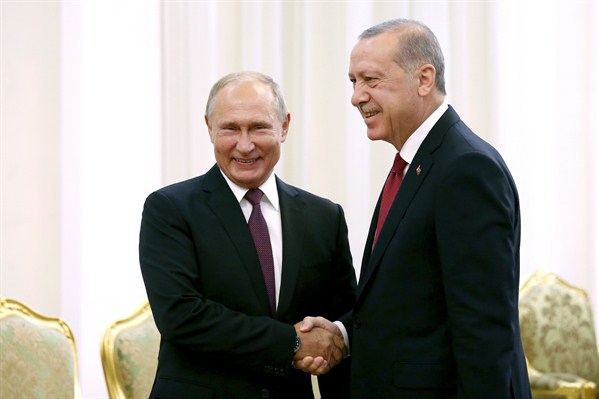Last month, Turkey and Russia, largely on opposites sides of the Syrian civil war, struck an 11th-hour deal to prevent a military assault by President Bashar al-Assad’s forces on the last remaining rebel stronghold of Idlib in northwestern Syria. While the agreement, which was reached in the Russian Black Sea resort town of Sochi, won’t end the Syrian conflict, it buys some time to attempt to find a sustainable resolution in Idlib, where there are some 30,000 rebel fighters, perhaps a third of them al-Qaida-linked extremists. But if all things fail, Russian President Vladimir Putin has crafted the agreement in a manner that ensures he stays in the driver’s seat.
Formally referred to as the Memorandum of Stabilization in the Idlib De-escalation Area, the Sept. 17 Sochi agreement is a 10-point plan that seeks to establish a demilitarized zone 15 to 20 kilometers deep inside rebel-held territory. Turkey gets to keep and reinforce the 12 observation posts it has erected in Idlib since 2017 to separate rebels from Syrian government forces. Under the terms of the agreement, heavy weapons must be cleared from the demilitarized zone by Oct. 10, while “all radical terrorist groups” have to be removed from the designated area by Oct. 15.
The international community has welcomed the deal, if only because it has put a halt to the imminent threat of a widescale humanitarian crisis that threatened the lives of some 3 million Syrian civilians, including approximately 1 million children.

